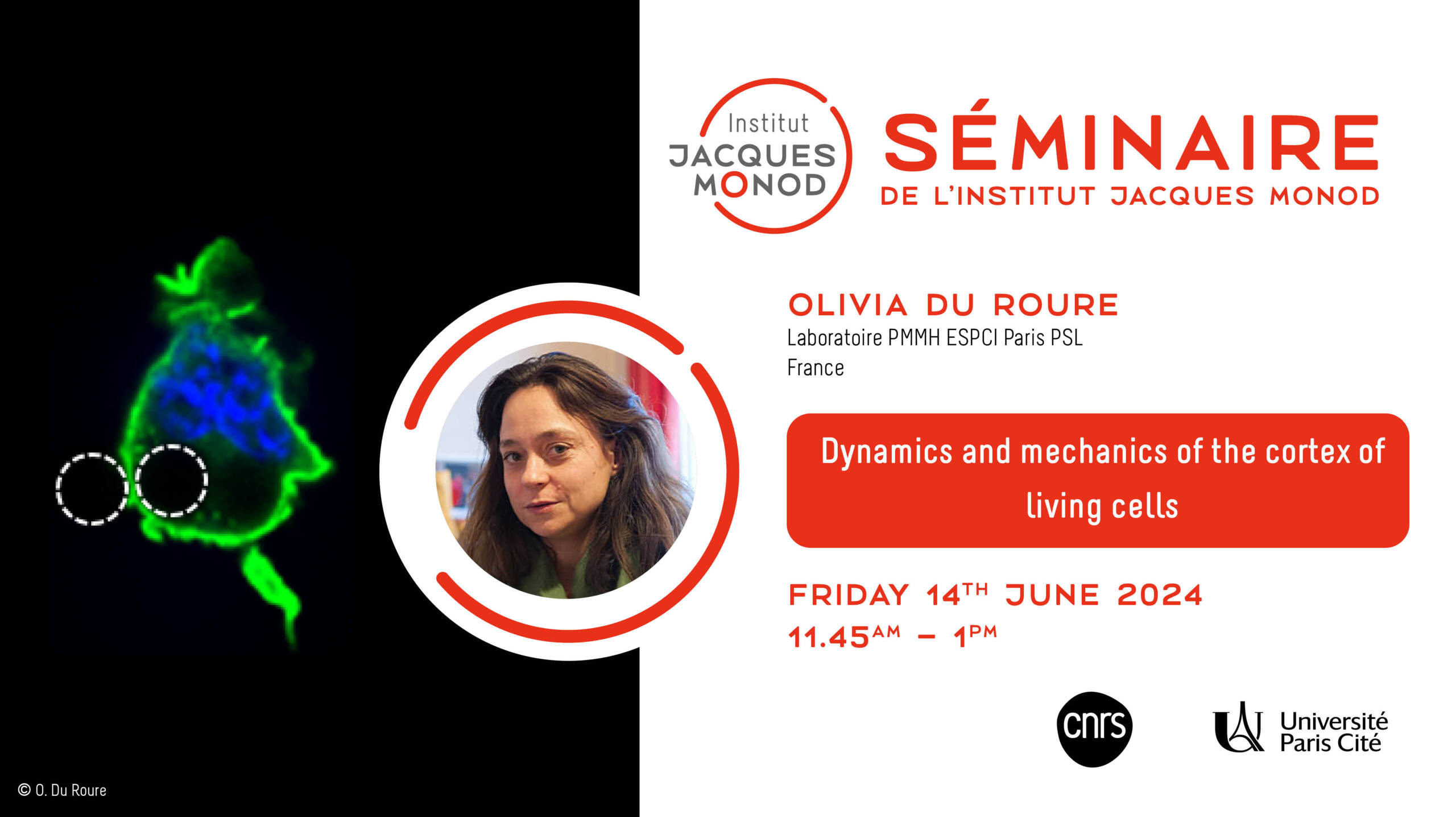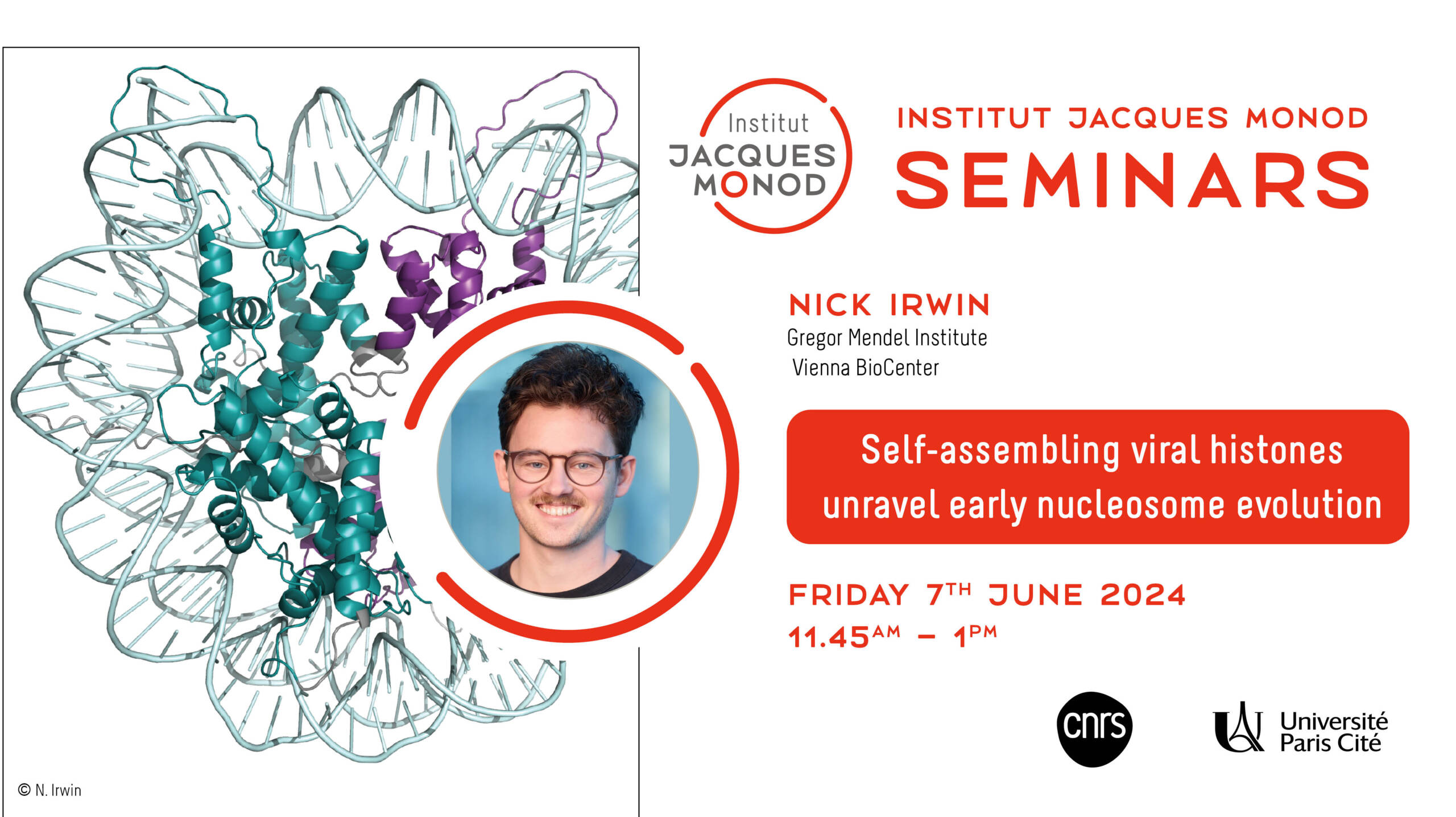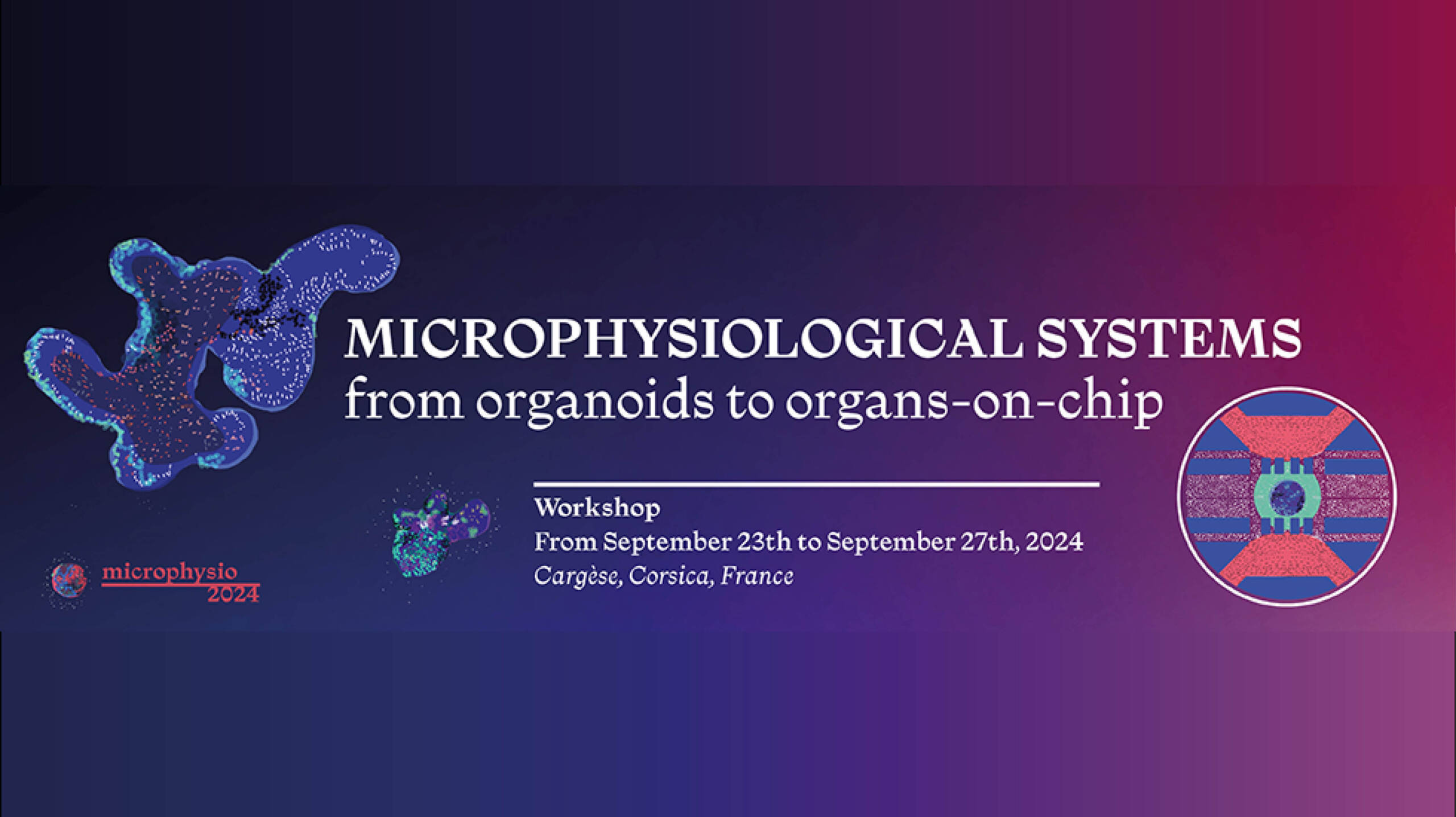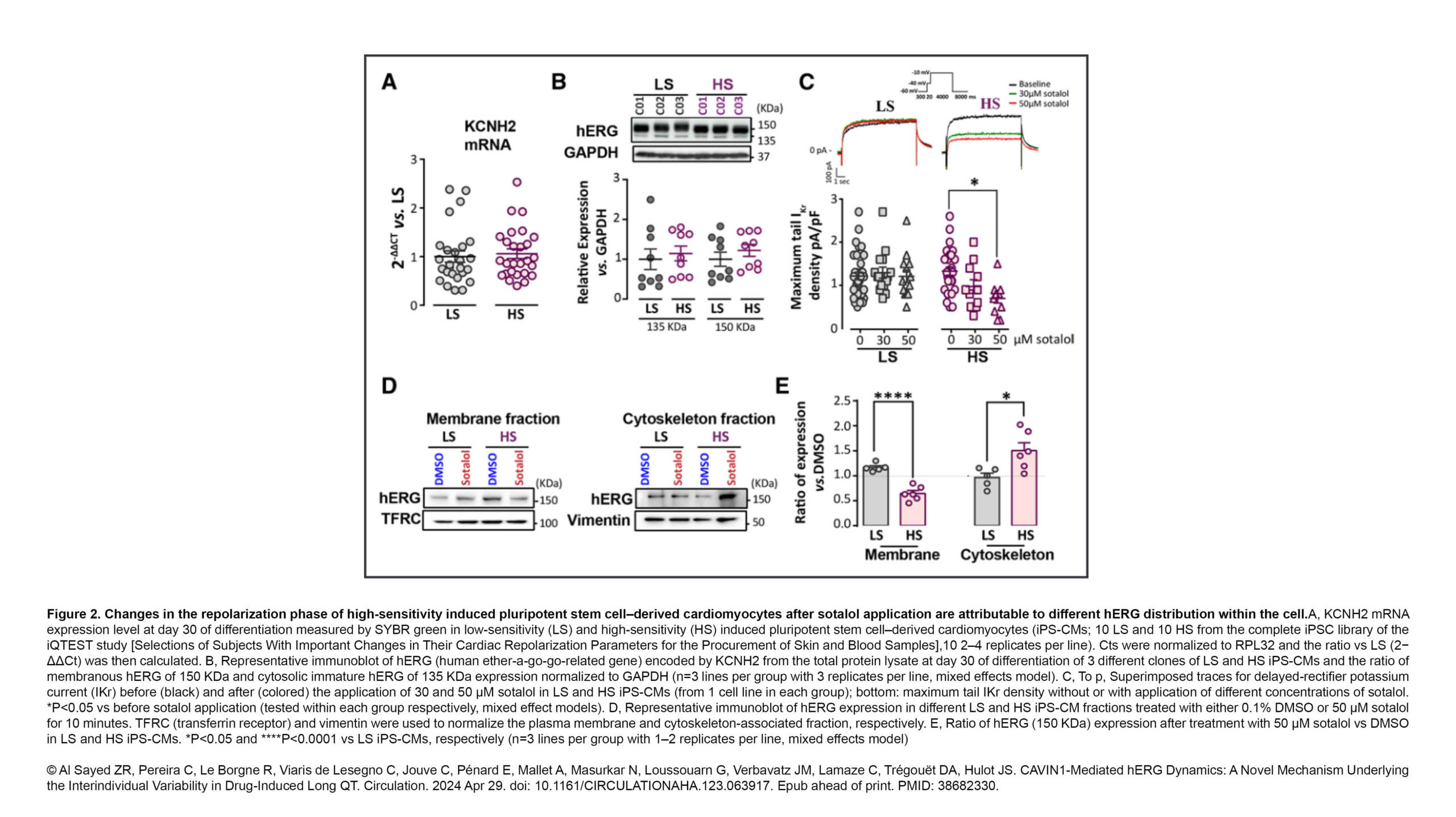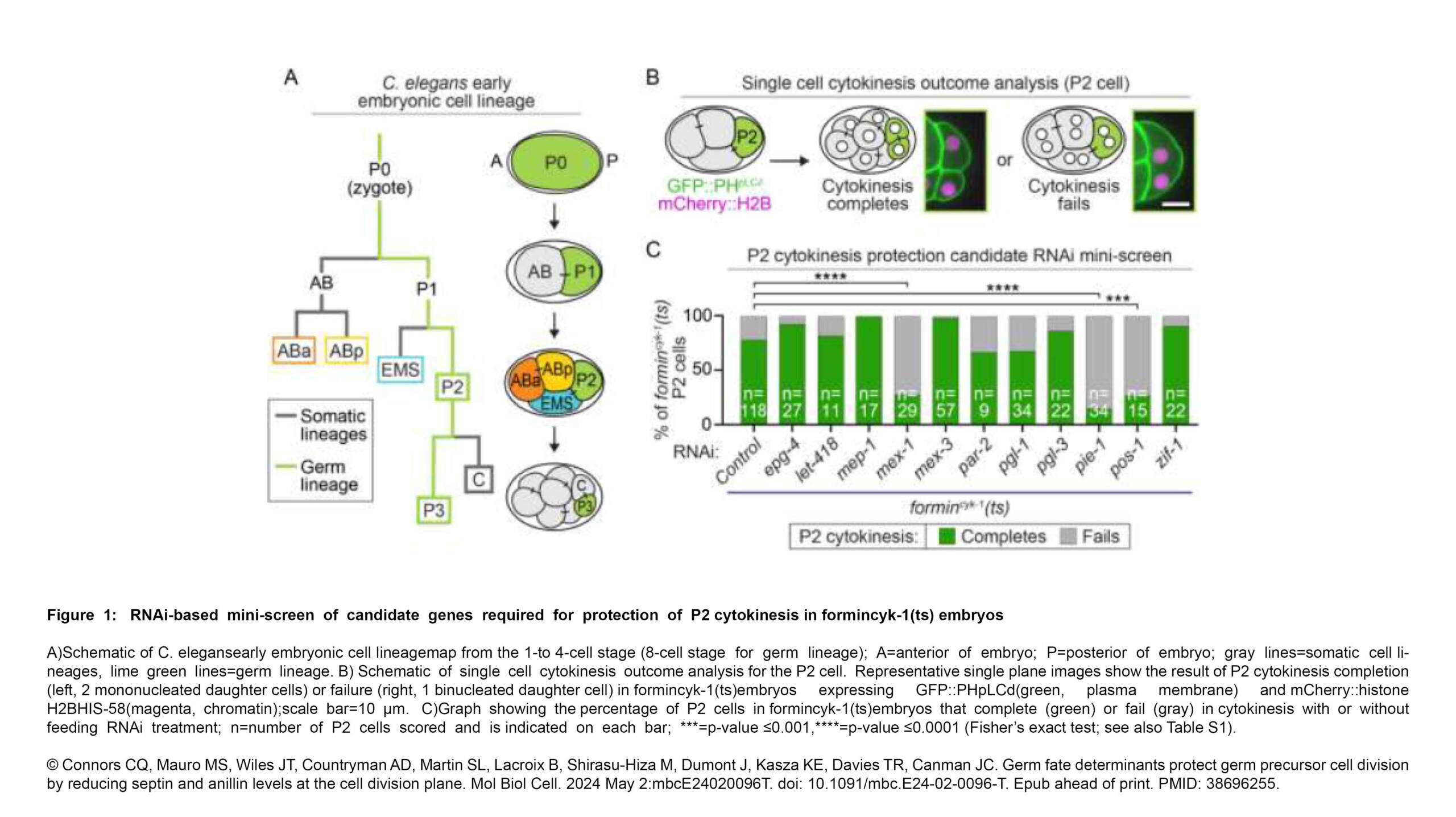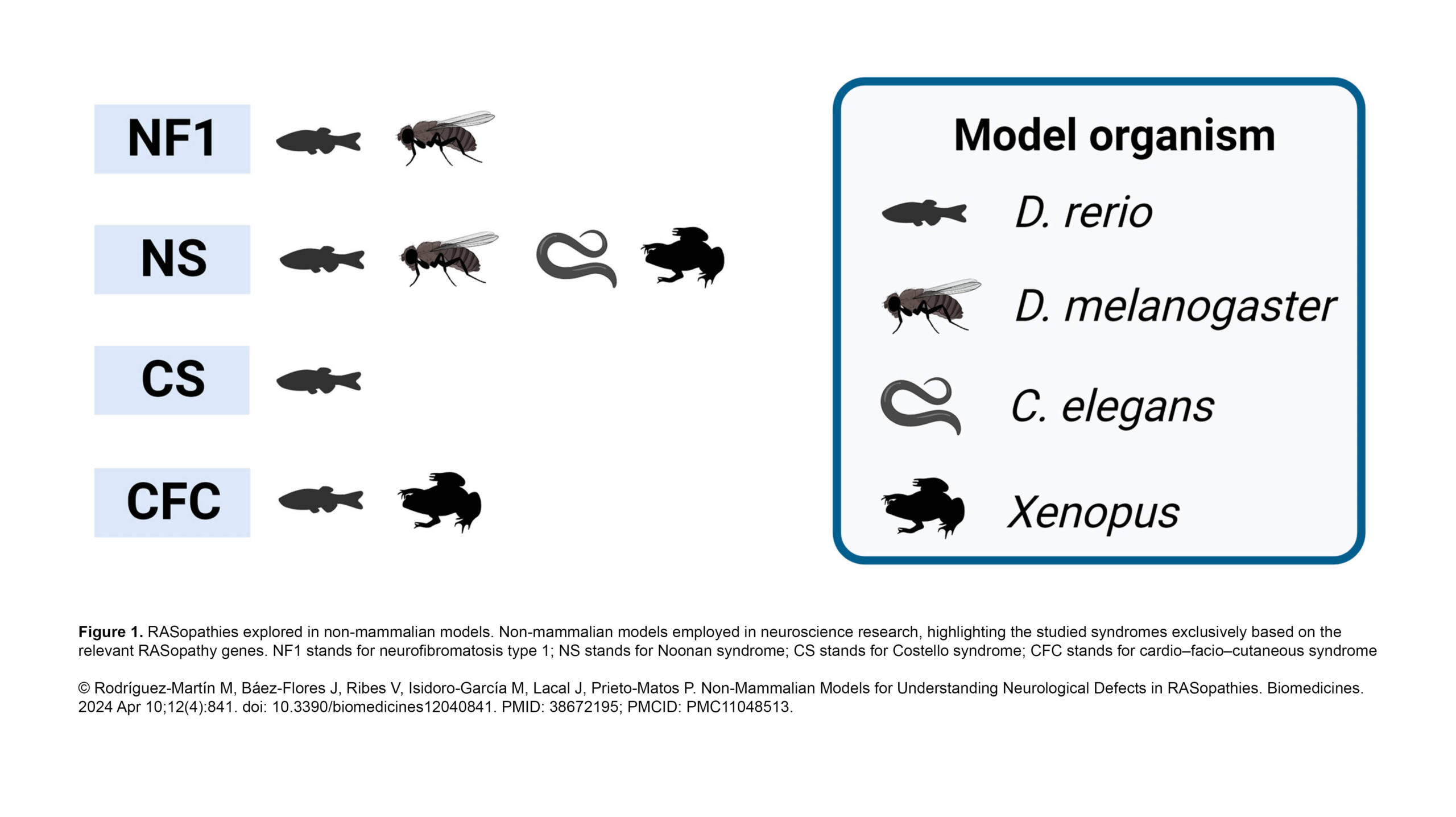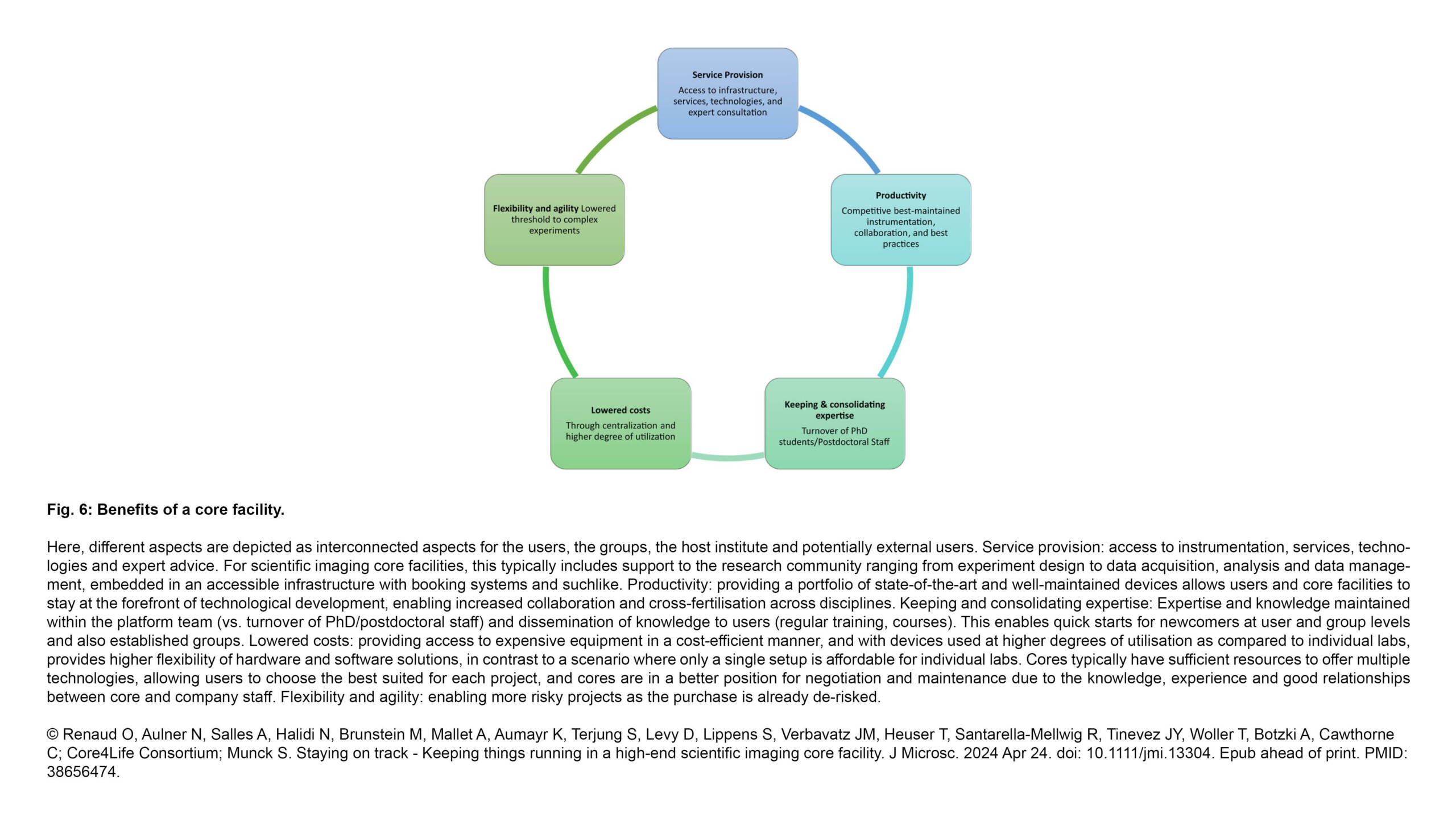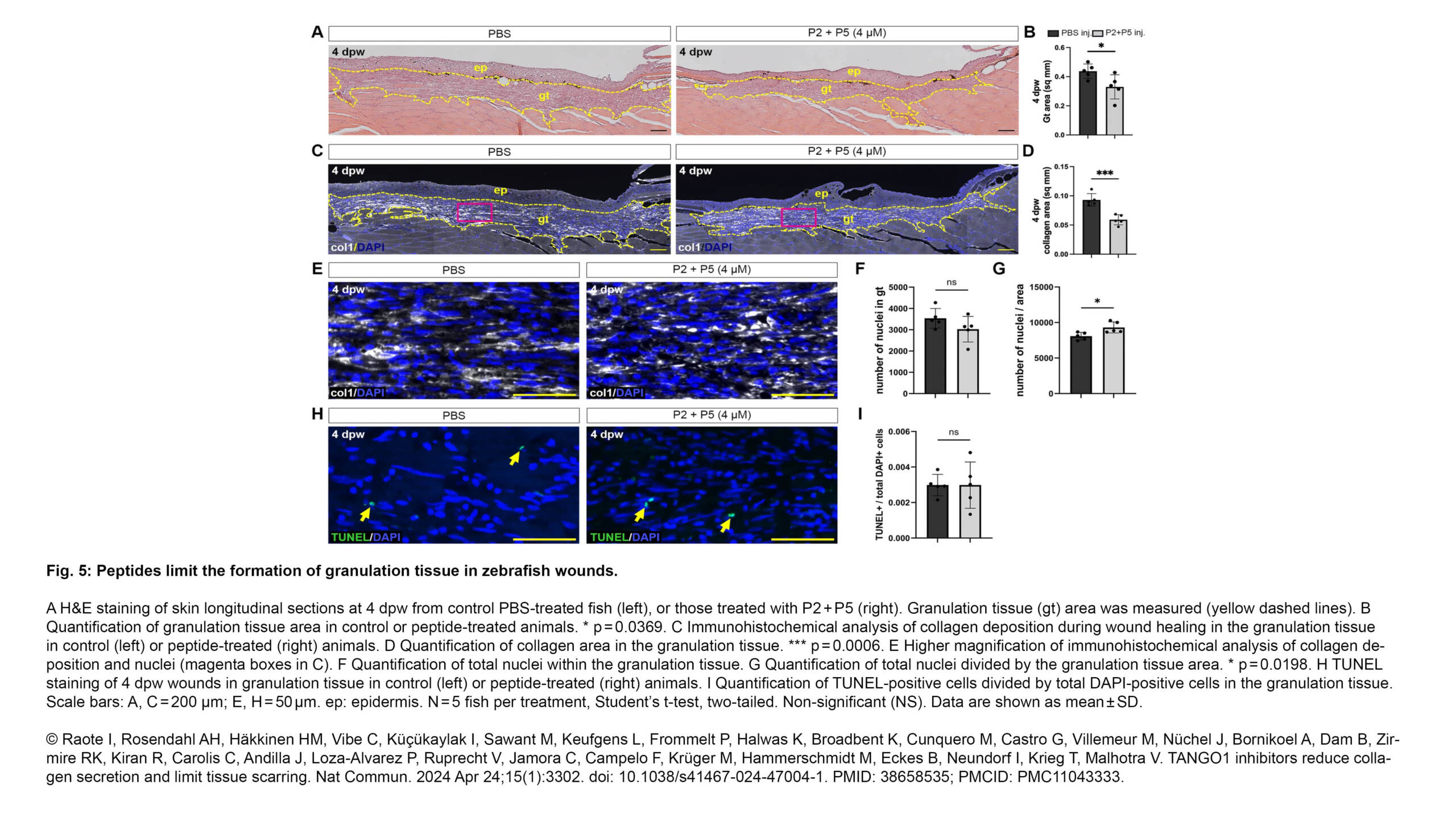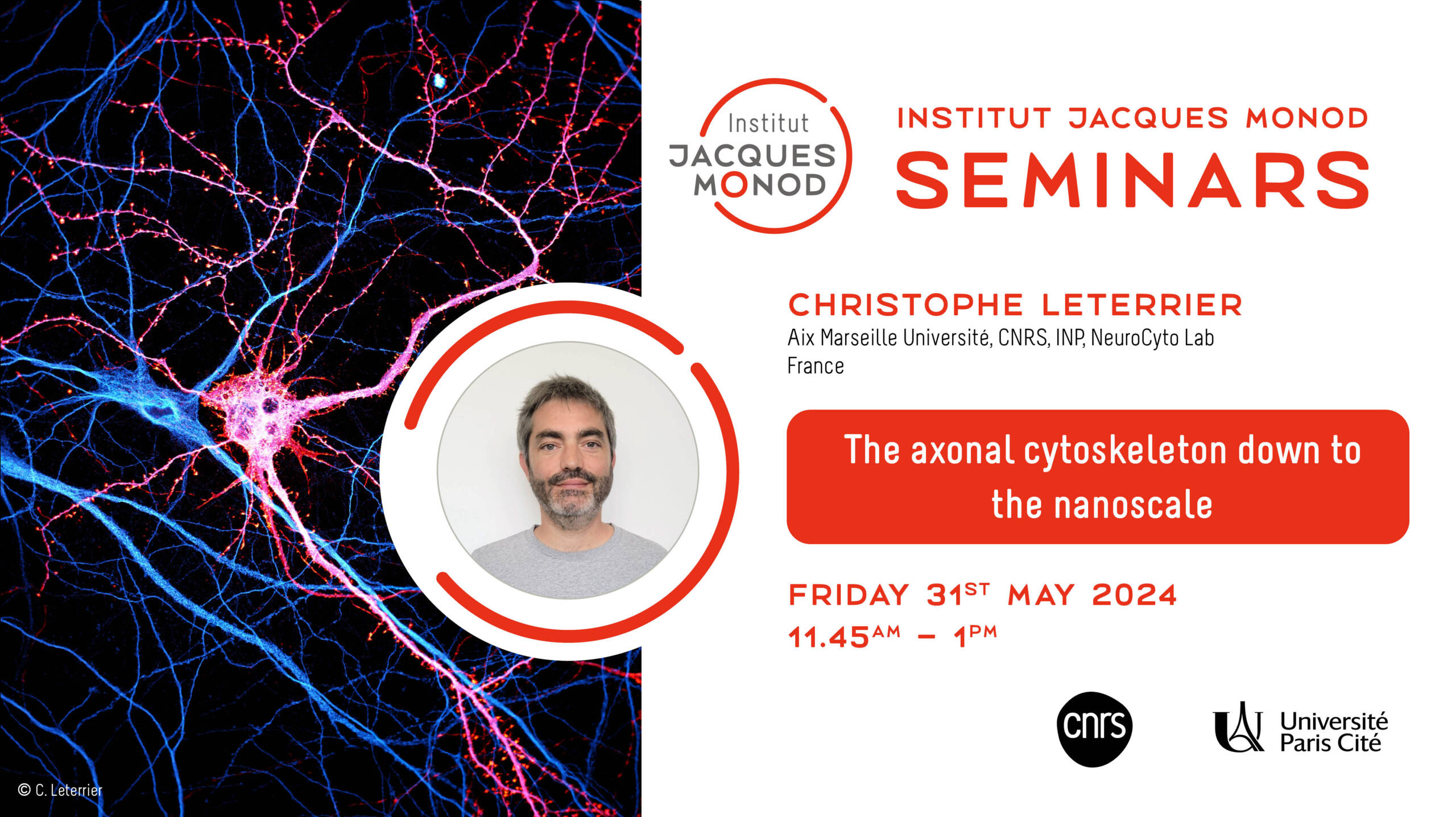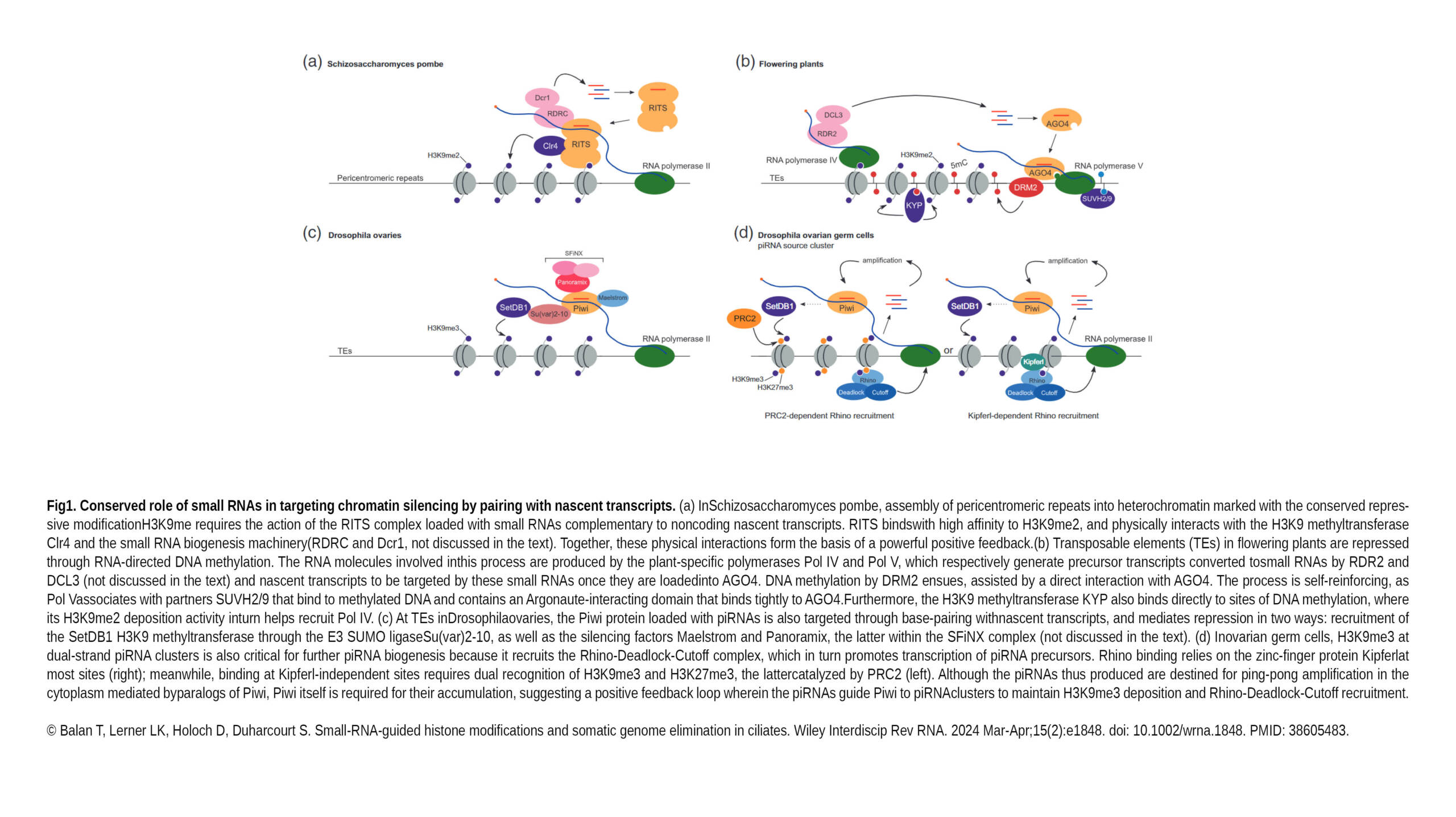Invited by the Ladoux/Mège, Olivia Du Roure (Laboratoire PMMH ESPCI Paris PSL) will present an Institut Jacques Monod Seminar on the theme:
Dynamics and mechanics of the cortex of living cells
Abstract:
The cell cortex is a contractile actin meshwork located below the plasma membrane, which determines cell shape and is instrumental for cell mechanics, migration and…
